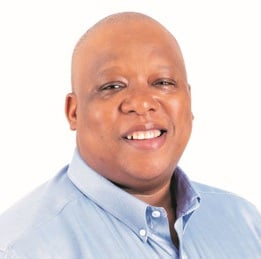

Senior vice president, group general counsel and company secretary, head of legal | Massmart



Sandile Lukhele
Senior vice president, group general counsel and company secretary, head of legal | Massmart
Team size: 30
What are the most significant cases and transactions that your legal team has recently been involved in?
The team provided expert legal advice regarding the disposal of the Cambridge and Rhino Cash & Carry business to Shoprite. This transaction was completed in January 2023, and we were able to preserve the jobs of the affected employees.
The team also offered expert legal counsel concerning the acquisition by Walmart of all the shares in Massmart held by the minority shareholders and the subsequent delisting of all Massmart Shares from the main board of the JSE. The deal’s value was ZAR6.4bn. This transaction marked a significant outcome with Massmart being wholly owned by Walmart.
Furthermore, we led the Group’s strategic initiative to exit our Game business from East and West Africa. This involved providing legal advice on the closure of all Game stores in five countries, as well as negotiating the exit of various agreements and supply arrangements.
How do you see the general counsel role evolving in South Africa over the next five-ten years?
The general counsel role is evolving past just identifying legal and regulatory risks and safeguarding corporations and businesses. Now, the general counsel and legal teams are required to be trusted business partners. A general counsel is required to contribute to making sound business and commercial decisions and to assisting in the formulation of both current and long-term strategies, Consequently, general counsel will need to be more than just a lawyer; the general counsel will be expected to possess additional skills in finance and business management. For example, within our organisation, the Enterprise Risk Management team and the Forensic Investigations team both report to the group general counsel.
Furthermore, most businesses are evolving into technology corporations, as they are substantively empowered by technology and AI tools. This transformation requires that general counsel become skilled experts in the laws and regulations governing the use and application of these technological advancements.
Looking forward, what technological advancements do you feel will impact the role of in-house legal teams in the future the most? Which have you found most useful in your legal team?
Our team is focused on utilising technology to drive efficiencies and reduce costs. This can be seen in three tools that we have introduced. We have implemented software that utilises AI to review invoices from our external attorneys and map the costs against agreed rates. This has reduced the administrative time spent on reviewing invoices and has resulted in cost savings.
Furthermore, we have introduced AI that assists with the first draft redlining of agreements and reduces the drafting time of our lawyers. The AI is trained through our playbook, which allows us to provide an acceptable level of risk and will then ensure that we are adopting a consistent approach to negotiations within our team.
For several years, we have also been utilising Updraft, which enables the team to provide a questionnaire to our stakeholders. Once completed, the questionnaire pre-populates our standard contract templates. As a result, our lawyers can focus on the details of the contracts rather than having to capture party information and commercial terms provided by stakeholders. This has significantly increased the turnaround time for drafting contracts.
We have appointed Anthea Holland, our VP general counsel for legal operations, to continue finding technology tools that will further drive efficiencies within our team.
How do you suggest in-house lawyers build strong relationships with business partners?
Legal teams often have a reputation for being roadblocks and appearing reactive rather than proactive. It is imperative that in-house lawyers establish relationships of trust with business partners and strive to become more than just legal advisers.
This requires in-house lawyers to consistently be present in the room with business partners during most, if not all, of their meetings. This allows lawyers to proactively advise the business during the decision-making stage rather than being pulled into matters afterwards. To build strong relationships, in-house lawyers must focus on facilitating business partners in achieving their strategic priorities and demonstrating the added value they bring. The role of an in-house legal team is to identify legal and regulatory risks to the business, working with partners to mitigate these risks.
I like to challenge my team not just to say “no” but rather to be solution-driven to enable our business partners to conduct business within legally and ethically acceptable guardrails. It is also imperative to manage the expectations of your business partners and ensure that you are communicating your turnaround times and highlighting capacity constraints. To become a trusted legal advisor, it will require you to ensure that you are meeting their expectations and never overcommitting and underdelivering, as this can affect business priorities.
Senior vice and group general counsel, and company secretary, head of legal | Massmart